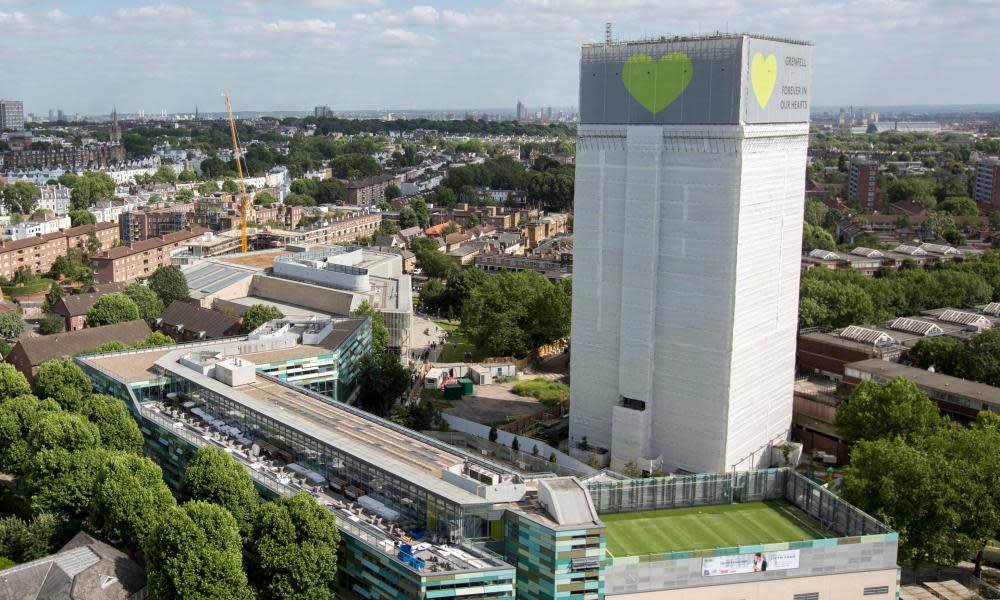Grenfell survivors demand immediate action on toxicity of soil

Lawyers acting for survivors of the Grenfell Tower fire have urged health officials to conduct their own detailed study into the potential toxicity of the soil around the site.
The lawyers have written to the chief executive of Public Health England (PHE), Duncan Selbie, to demand he act immediately rather than wait for the final report of an independent study, which has already identified significant amounts of toxins in its preliminary findings.
In the letter to PHE, four law firms that represent more than 270 bereaved families at the independent public inquiry said it was time to undertake bulk testing of soil, dust and fire residue samples.
“It is paramount that PHE should commence soil testing in order to satisfy itself that it is discharging its public duties to ‘protect and improve the nation’s health and wellbeing, and reduce health inequalities’,” the letter concluded.
Dr Yvonne Doyle, PHE’s regional director for London, said she thought any risk to health from soil contamination was “considered to be very low because people would need to be exposed to the soil over long periods of time”.
The intervention by the lawyers came as pressure mounted on PHE and the Royal Borough of Kensington & Chelsea to explain what they did when the toxicology expert Prof Anna Stec warned them of a potential problem in February.
On Monday, Grenfell United, which represents the families of the 72 people who died, asked ministers and the authorities to explain why no one who knew about the early results of the research had warned residents of potential contamination.
The details emerged last week when the Guardian revealed that Stec had told senior health officials, the council and the police of her concerns.
Stec said early results from samples she analysed had revealed “huge concentrations” of potential carcinogens in residue around the tower and in burned debris that had fallen from it. High levels of hydrogen cyanide were also present in soil samples she had studied.
Stec, an expert in fire chemistry and toxicology who runs a team at the University of Central Lancashire, was recently appointed as an expert witness to the Grenfell Tower inquiry.
The council and PHE have defended their position. They said they were not given the details of Stec’s early findings and that air quality tests around the tower in north Kensington had not given any cause for alarm.
The council said on Monday it was seeking an “urgent meeting with Prof Stec to discuss her study, its methodology and its implications”.
Doyle said PHE supported the move. “Local authorities are responsible for assessing and legally determining contaminated land within their communities, and we are supporting Kensington & Chelsea council to come to a decision on what actions are most appropriate.
“PHE has asked Prof Stec for the data and evidence so that it can be carefully reviewed, and appropriate action taken.”
The letter to PHE from the law firms Bhatt Murphy, Bindmans, Hickman & Rose and Hodge Jones & Allen urges PHE to go much further. They want PHE to adopt the broad approach taken by health agencies after the collapse of the twin towers in New York following the 9/11 attacks.
“The scale of the Grenfell Tower disaster in our view justifies a similar approach (albeit on a smaller scale),” the letter said.
“That approach involved bulk testing of dust samples for asbestos from areas widely distributed around the ground zero site, bulk testing at the landfill site, sampling of dust by the US Geological Survey and air monitoring.”

 Yahoo News
Yahoo News 
